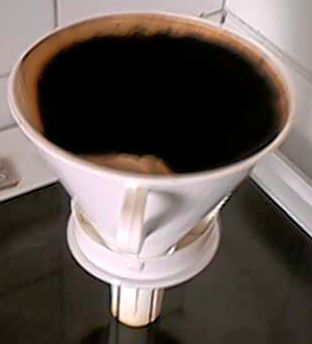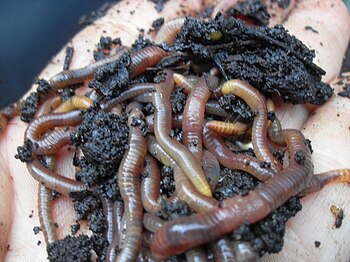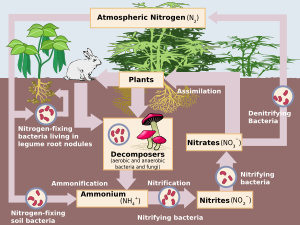Brewed coffee is acidic, but the grounds produced from the brew are not. The brewing process removes the acid and they become neutral and nitrogen-rich. This is good news and lends itself to practical applications in your garden.
| Coffee grounds. (Photo credit: Wikipedia) |
Another way to use your grounds is to work them well into the soil before you plant your garden. Or consider lightly sprinkling them around your garden before a good watering as if they were a slow-release nitrogen fertilizer.
Consider making a compost tea with the remains. Try grounds and water for a weak mix and let it heat up. Strain it and spray on the plant leaves. You might want to do a test run first to make sure it's not too strong. Otherwise, you can make a full-blown tea with other compost material too and aerate the mixture with a pump and bubblers before straining and spraying it.
Some people like to spread coffee grounds around their acid-loving plants, but since the coffee's acid was depleted in the brewing process, it may not really give extra help to these plants. There are those who swear by it though.
If crawling pests are a problem, try spreading grounds and crushed egg shells around plants in an effort to deter pests such as slugs.
| A handful of healthy worms in coffee compost (Photo credit: Wikipedia) |
You can keep a container in the kitchen for your grounds after you brew your coffee and then dump them all into your compost bin at the end of the week. Alternatively, you can get larger quantities by visiting your local coffee shops and asking for their grounds. Consider making arrangements to pick up their waste on a specific day each week and they'll keep you "grounded". Do watch your ratio though, as it should not be more than 20-25% of your total compost material.
The next time you have coffee, save the remains for the benefit of your garden. Put them in your compost pile, feed the worms, work into the soil, or use in a tea, and watch your plants thrive!



